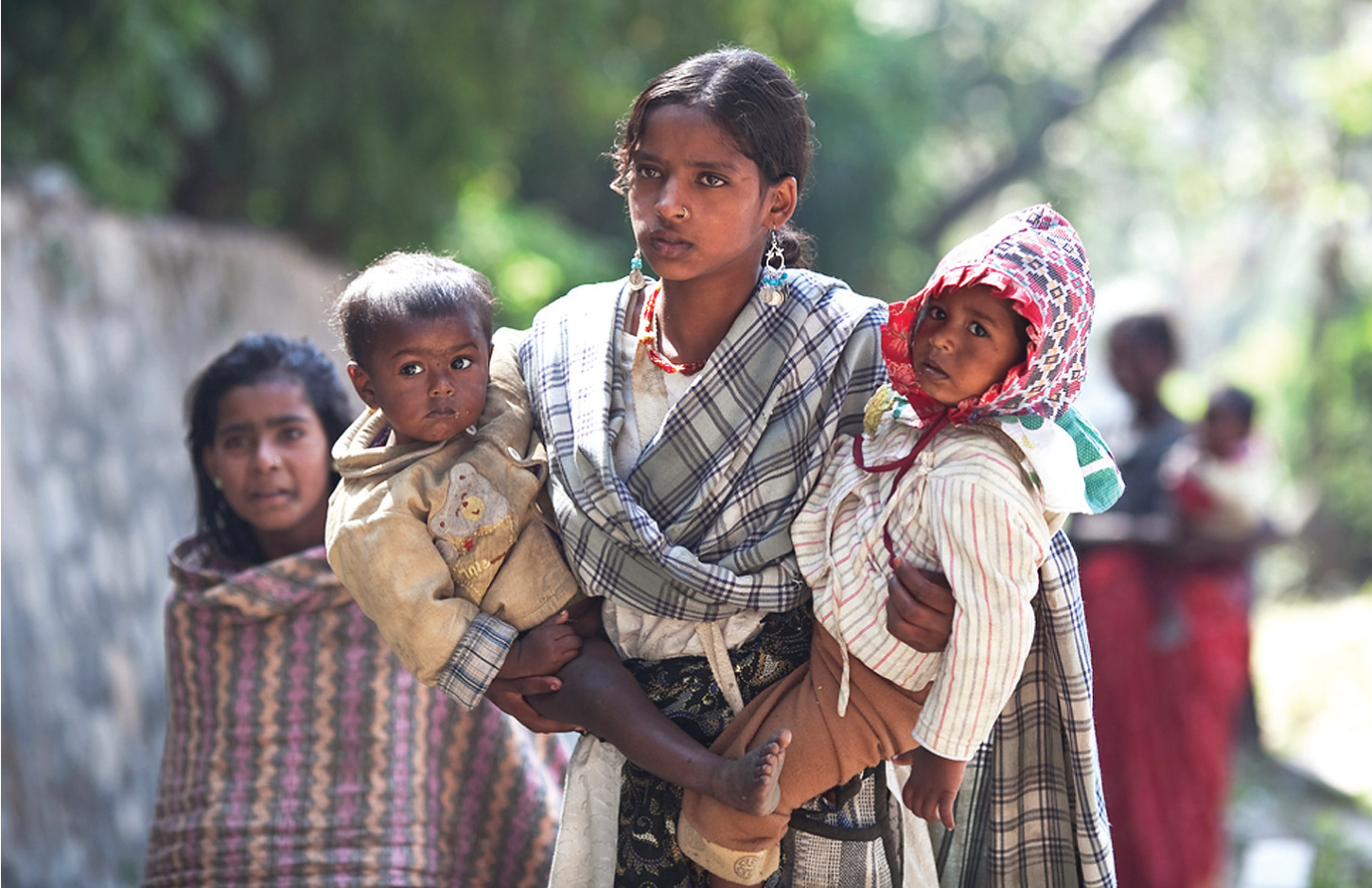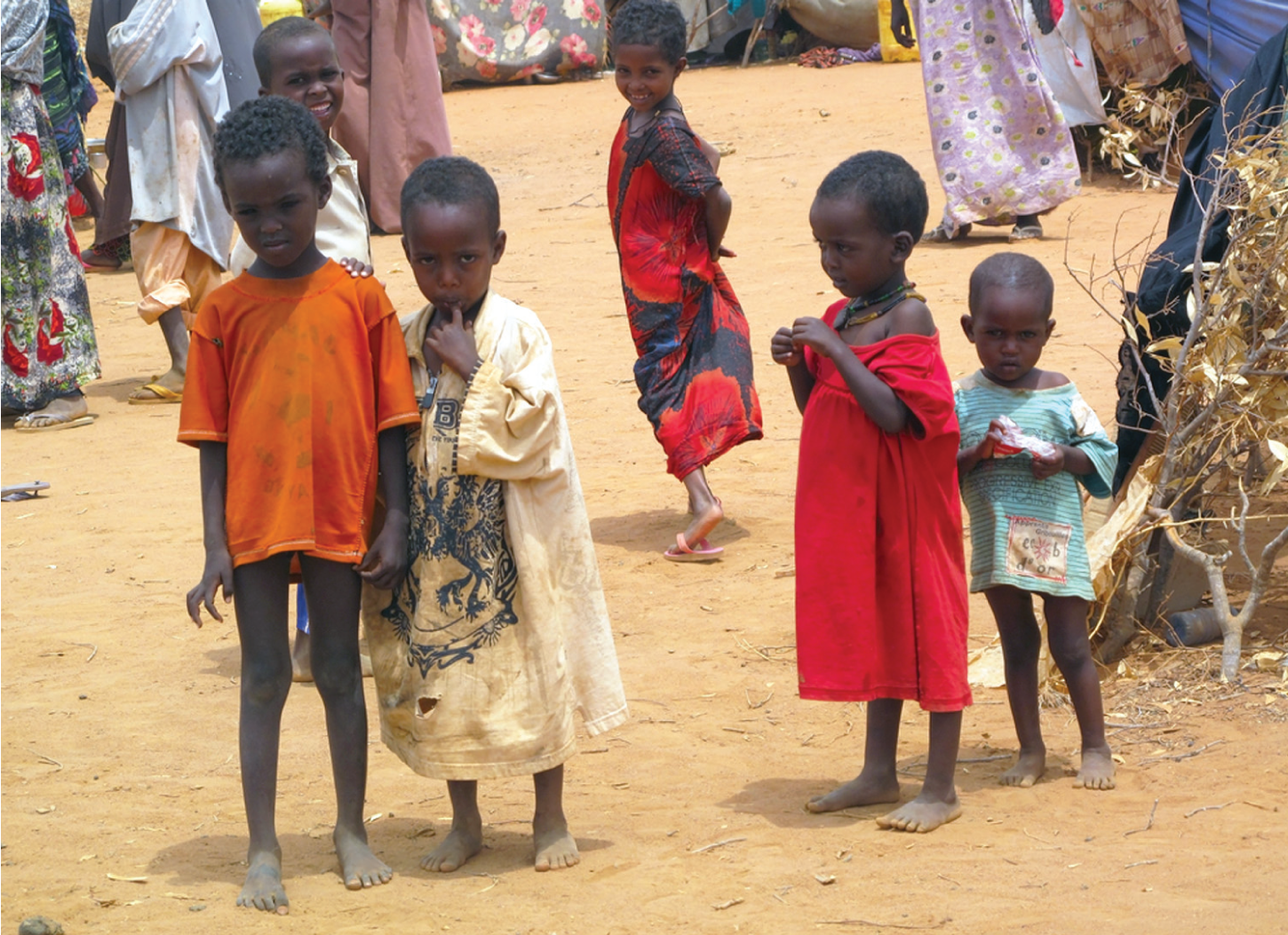Study Identifies Factors That Impact Refugee Youth
Abstract
The U.N. Refugee Agency reports that more than 137,000 Somalis fled into Kenya and Ethiopia in the first half of 2011. Seeking to escape the combination of violence and drought in their home country, they walked for weeks to reach the neighboring countries, often leaving weaker family members behind or watching helplessly as they died along the way. Half of the fleeing refugees—and a substantial number of those who died—were children.

Millions of children and adolescents throughout the world have been displaced because of armed conflict. Why do many of these youth survive with resilience while others suffer psychological harm?
What mental health problems lie in the future for the survivors? And what might make these children, and children like them around the world, resilient in the face of such adversity?
Researchers at Oxford, Harvard, and Yale universities and the Oxford Health NHS Foundation Trust recently conducted a systematic review of the research literature detailing mental health risk factors and outcomes of displaced and refugee children and adolescents, characterizing them by the income levels of the countries in which they eventually settled. Countries were defined by income in accordance with the World Bank classification.

These Somali children, photographed in August, are among the thousands of refugees living in a camp in Dadaab, Kenya, near the Somalia border. The camp is thought to be the largest refugee camp in the world.
"Our main interest was in uncovering what makes this population resilient," co-authors Ruth Reed, M.R.C.Psych., a specialty registrar with the Oxford Health NHS Foundation Trust, and Mina Fazel, D.M., a postdoctoral research fellow at the Oxford University Department of Psychiatry, told Psychiatric News. "There are significant numbers of these children who are doing well, despite high exposure to possible risk factors for psychological disorders. We were keen to learn what might contribute to a good outcome as well as predict a bad outcome."
After finding 5,296 potentially relevant reports through database searches, the researchers identified 27 studies characterizing 5,765 children and adolescents who were resettled in low-income and middle-income countries, and 44 studies characterizing 5,776 displaced children and adolescents who were resettled in high-income countries.
Their review indicated that exposure to premigration violence, settlement in a refugee camp, and internal displacement (within their country of origin) all served as risk factors for mental health outcomes in children resettled in low-income and middle-income countries. Repatriation was the only protective factor identified.
For children resettled in high-income countries, more factors were identifiable. Exposure to premigration or postmigration violence were risk factors, as were being unaccompanied, perceiving that they were victims of discrimination, parental exposure to violence, and poor financial support. Having a single parent or a parent with psychiatric problems was also a risk factor for poorer mental health outcomes. Protective factors included high parental support and family cohesion, support from friends, positive school experiences, and having same ethnic-origin foster care.
Despite the fact that more risk and protective factors were able to be evaluated in children relocated to high-income countries, as compared with those relocated to low- and middle-income countries, the researchers noted that the absence of information on all refugee children was perhaps the most notable finding of their analysis: Fazel told Psychiatric News that she and her colleagues were surprised at the paucity of data available on factors likely to play a significant role in the psychological well-being of refugee children, such as family factors, living conditions, school environment, peer relationships, and neighborhood/community factors.
"These factors are more complex to study and therefore do not lend themselves to being investigated in most short-term studies, and yet they play such a significant role in children's development that the lack of information was surprising," she said.
"The most disturbing aspect was the reminder of how many children around the world are innocent victims of conflict and persecution, and yet so little is known about how to support their healthy psychological development (see Refugee Children: A World Problem). The vast majority of these children reside in low- and middle-income countries, and yet more of the studies come from high-income countries. Very little is known about children who are displaced within their own countries, and yet two-thirds of all forcibly displaced children are internally displaced."
These analyses of published studies offered research guidance, such as the need for research on specific groups of children, including ex-combatants, children who have been the victims of trafficking, children with uncertain immigration status, and refugees returning (voluntarily or involuntarily) to their home country.
"This work has highlighted the importance of and necessity for longitudinal studies. We hope researchers will use it to identify areas that would most benefit from good-quality studies, as these two reviews have collated all the data available from the existing work," said Fazel.
An abstract of "Mental Health of Displaced and Refugee Children Resettled in High-Income Countries: Risk and Protective Factors" is posted at <www.ncbi.nlm.nih.gov/pubmed/21835459>. An abstract of "Mental Health of Displaced and Refugee Children Resettled in Low-Income and Middle-Income Countries: Risk and Protective Factors" is posted at <www.ncbi.nlm.nih.gov/pubmed/21835460>



